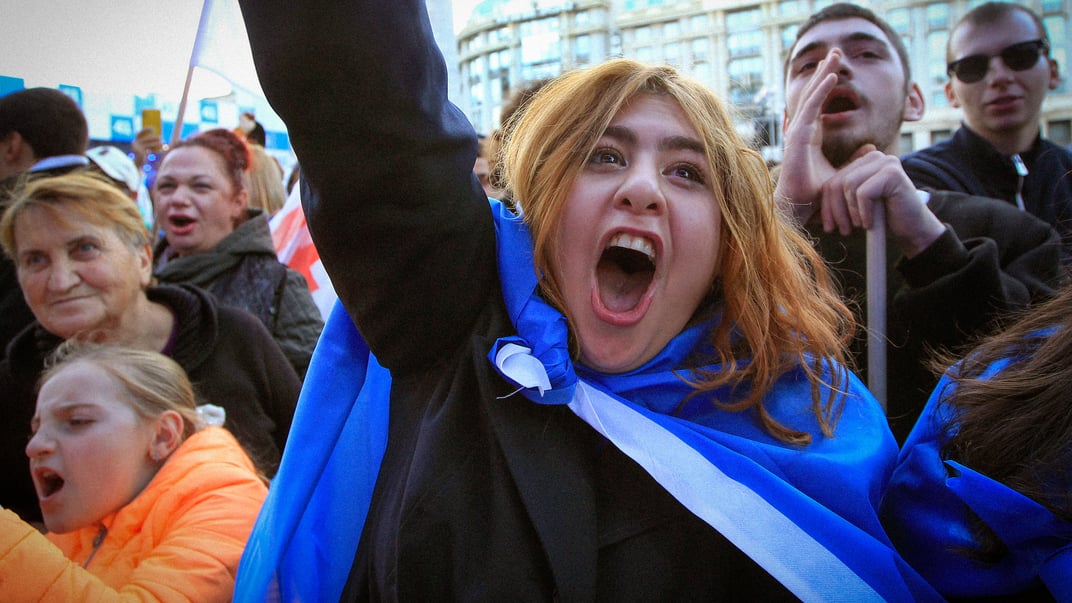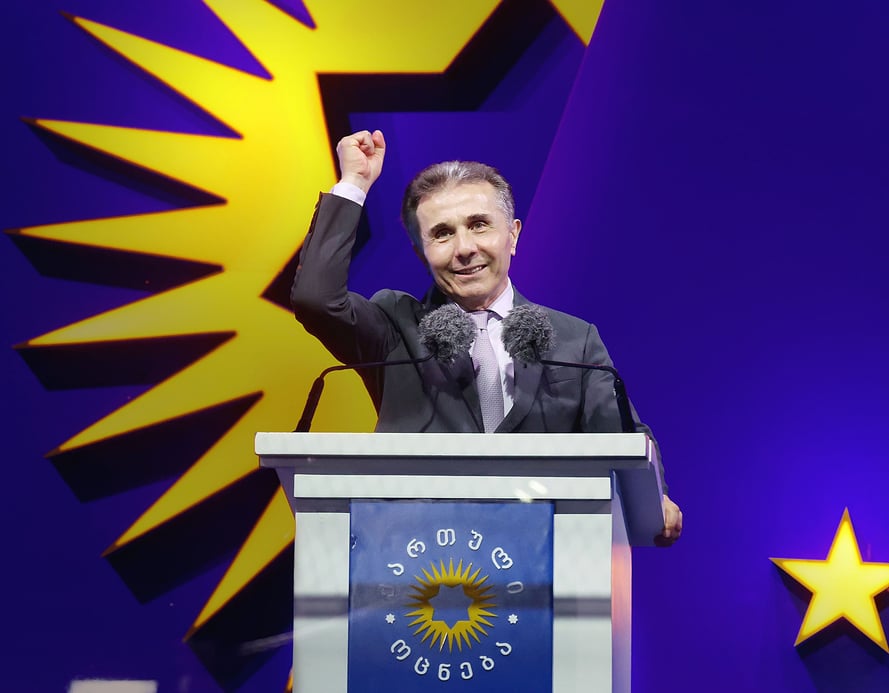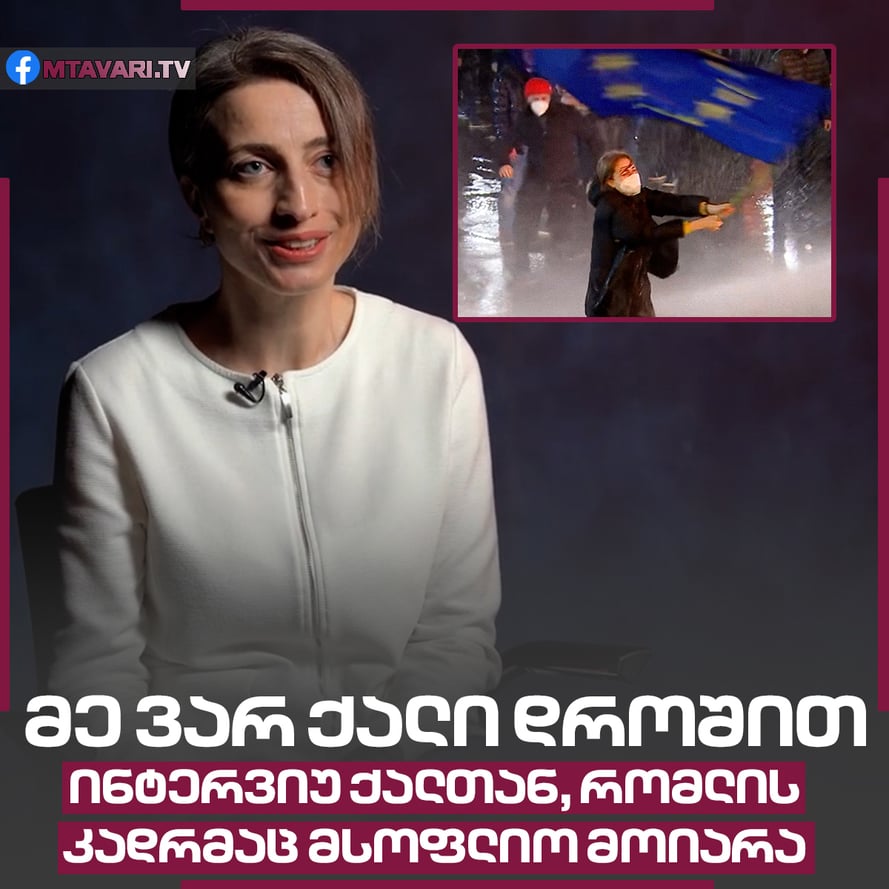Georgia is heading towards "historic elections": key insights on the parties and their chances.

New Voting System
In 2024, Georgia will conduct its first election using a proportional voting system, moving away from the “majoritarian” method. Parliamentary mandates will be distributed among parties that surpass the five percent threshold, in proportion to the number of votes received.
Opposition forces hope this will work in their favor. The ruling party, “Georgian Dream,” has held a parliamentary majority for 12 years, but has only garnered over 50% of the votes once — at the height of its popularity in 2012. In the 2016 and 2020 elections, the majoritarian system helped it secure a majority.
Surveys indicate that “Georgian Dream” remains the most popular party. However, it is unlikely to achieve a parliamentary majority and form a government independently. The chances of forming an alliance with another political force are also slim, as all major opposition blocs have promised not to ally with “Georgian Dream.”
A likely scenario is that the current Georgian opposition will form a multi-party government. However, they must first overcome their internal conflicts.
Main Participants in the Elections
This year, 19 parties registered for the elections in Georgia, but only five political forces are considered realistically capable of surpassing the 5% threshold: the ruling party “Georgian Dream” and four opposition alliances — “Unity,” “Coalition for Changes,” “Strong Georgia,” and “For Georgia.”

The party “Georgian Dream — Democratic Georgia” was founded in 2012 by Georgia's wealthiest man, billionaire businessman Bidzina Ivanishvili. “Georgian Dream” has been governing the country for 12 years — the longest period in the history of the country's independence.
Recently, the party has faced a wave of criticism due to its moves towards rapprochement with Russia, while a majority of citizens support joining the EU. Just before the elections, the party pushed through a law on “foreign agents,” which is considered a clone of the Russian law, damaging relations with the EU, and its members have faced U.S. sanctions. “Georgian Dream” promises its voters “to maintain peace,” fearing
Recent polls show support for “Georgian Dream” at around 35% (although a GORBI poll commissioned by the pro-government TV company “Imedi” indicated as high as 60%).
“Unity — National Movement” is an alliance of Georgia's largest opposition political force — the “United National Movement,” founded by Mikheil Saakashvili — along with the parties “Strategy Agmashenebeli” and “European Georgia.”
As written by JAM News, the main points of the coalition's program are printed on sheets that mimic EU passports. The five priorities of “Unity” are EU membership, income growth, pensioner protection, strong families, and ending price mafia.
Surveys indicate support for “Unity” at up to 18%.
“Coalition for Changes” was formed based on the “Akhal” party of former director of the opposition TV company “Mtavari Arkhi,” Nikoloz Gvaramia. It also includes the opposition parties “Droa” and “Girchi — More Freedom,” as well as individual politicians and public figures.
The coalition promises voters systemic changes and a “major reboot” with a primary focus on EU membership. The coalition's symbol is the number four — due to its fourth position on the ballot and their “4-4-4 plan.” The coalition promises to present key initiatives for changes in four areas four days after the formation of a coalition government (if victorious): resuming Euro-integration processes, initiating democratization processes, tax reductions, and education reform.

The first candidate on the coalition's electoral list is Nana Malashkhia — an employee of the Tbilisi city hall, who became a symbol of the March protests against the “foreign agents” law. During that time, photos of her waving the EU flag circulated online, despite the fact that law enforcement used water cannons against the protesters.
According to surveys, the support level for the “Coalition for Changes” ranges from 9% to 18%.
“Strong Georgia” is a coalition formed around the “Lelo” party of Mamuka Khazaradze. It also includes the political parties “For the People,” “Citizens,” and “Freedom Square.” The bloc is supported by Georgia's fourth president, Giorgi Margvelashvili, although he is not on the party list.
Among the points of the “Strong Georgia” program, many promises concern Russian citizens in the country — they are promised restrictions on land purchases, a ban on participation in state tenders, and the introduction of an “occupational fee” for Russian businesses.
According to survey data, it has a support level of 9-10%.
“For Georgia” is the team of Giorgi Gakharia — the former Prime Minister of Georgia and a former associate of Ivanishvili, who was number one on the list of “Georgian Dream” in the 2020 parliamentary elections. As Minister of Internal Affairs, he became embroiled in a scandal due to the harsh dispersal of the protest on June 20, 2019, during which more than 200 demonstrators and journalists were injured.
Gakharia's team primarily consists of politicians who have left “Georgian Dream” at various times, notes JAM News.
According to surveys, the support level for “For Georgia” ranges from 8% to 11%.
How Will the Government Be Formed?
To form a government, at least 76 out of 150 deputies in Georgia must express confidence in the potential Prime Minister and the Cabinet of Ministers. A party or coalition can propose them.
The parliament has two weeks to review and vote. First, the party that comes in first in the elections proposes its candidate for the Prime Minister position. If the vote fails, the right to nominate a candidate passes to another bloc/party. This means that even if a party or coalition loses the elections, they still have the opportunity to form a government.
The leading party in the polls — “Georgian Dream” — can form a government independently if it obtains 76 mandates from the voting results (i.e., more than 50% of the votes). Otherwise, it will need to find an ally to ensure sufficient support for its candidate. This will be challenging, as almost all major opposition forces have promised not to ally with this party.
Opposition forces may collectively gather the necessary support to form a government, but they must reach an understanding, which may not be easy.
Before the elections, Georgian President Salome Zurabishvili proposed the “Georgian Charter” — a plan to unite all major opposition figures under one symbolic flag as a united pro-European opposition. In practice, this imposes no obligations on the participants but turns the elections into a sort of referendum, where people choose between pro-European opposition parties or the pro-Russian “Georgian Dream.”
However, it may be difficult for the opposition to agree on other issues. For instance, Gakharia has already stated that he will not form a coalition with either “Georgian Dream” or the opposition “National Movement.”
President Zurabishvili suggested uniting Gakharia's party with the “Strong Georgia” bloc. Sociologists predicted them 25% of the votes if they formed a coalition. However, negotiations that began shortly before the elections were unsuccessful.
If the parliament fails to approve a government on the second attempt, the president must call for early elections within two months.